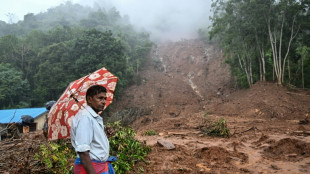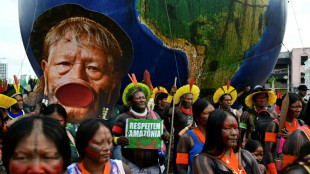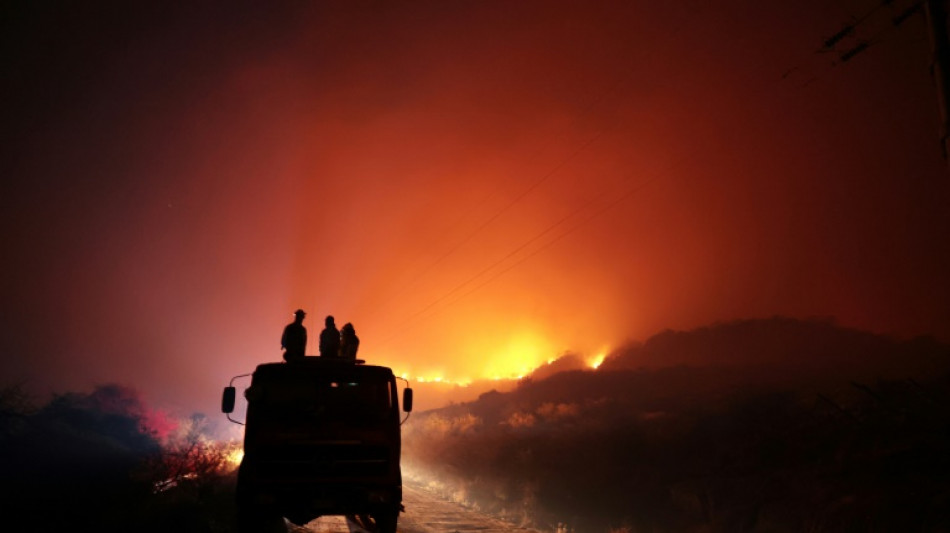
-
 Teen Mbaye seals AFCON last-16 victory for Senegal over Sudan
Teen Mbaye seals AFCON last-16 victory for Senegal over Sudan
-
Toulouse stunned by Perpignan but stay top as Pau lose

-
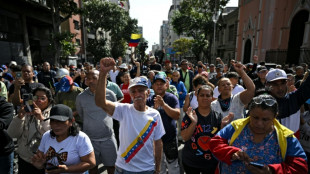 Venezuelan capital quiet, streets emtpy after US strike
Venezuelan capital quiet, streets emtpy after US strike
-
Bike rookie Canet enjoys dream Dakar start
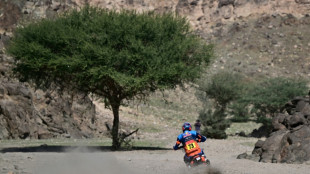
-
 Villa rebound from Arsenal defeat, Wolves claim first win
Villa rebound from Arsenal defeat, Wolves claim first win
-
Gauff saves US at United Cup, Wawrinka starts farewell season with win
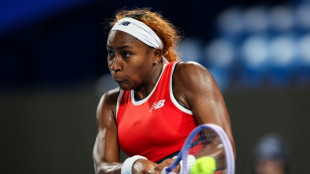
-
 Villa rebound from Arsenal defeat as West Ham collapse against Wolves
Villa rebound from Arsenal defeat as West Ham collapse against Wolves
-
Swiss investigate bar managers after deadly New Year's blaze
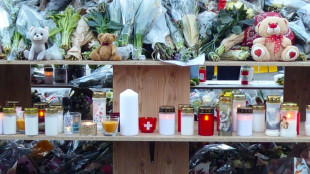
-
 Champions Toulouse stunned by Perpignan in Top 14
Champions Toulouse stunned by Perpignan in Top 14
-
Saudi-backed forces make advances in Yemen's Hadramawt

-
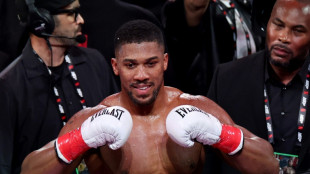 Joshua returns to Britain after fatal crash in Nigeria
Joshua returns to Britain after fatal crash in Nigeria
-
Nicolas Maduro: From bus driver to iron-fisted leader

-
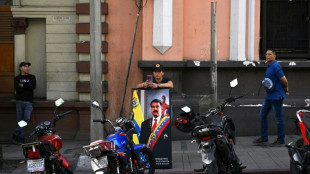 US allies, foes alarmed by capture of Venezuela's Maduro
US allies, foes alarmed by capture of Venezuela's Maduro
-
Ukraine's allies in Kyiv for talks on plan to end war

-
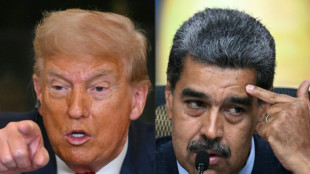 'Like a television show': Trump revels in Maduro capture
'Like a television show': Trump revels in Maduro capture
-
Villa fell Forest to ease pain of Arsenal rout

-
 Swiss skier Rast wins giant slalom, pays tribute to Crans-Montana victims
Swiss skier Rast wins giant slalom, pays tribute to Crans-Montana victims
-
Trump hails capture of Maduro as US vows legal 'wrath'
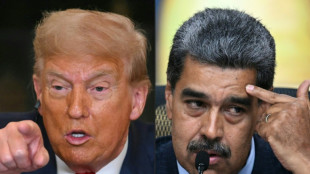
-
 Real Madrid's Alonso unsure of Mbappe absence length
Real Madrid's Alonso unsure of Mbappe absence length
-
US bombs Venezuela and captures Maduro, according to Trump
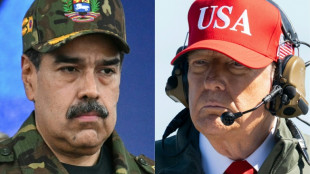
-
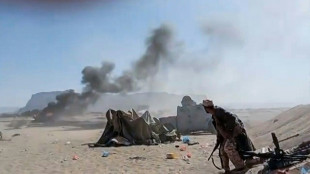 Saudi-backed forces make advances in Yemen's Hadramawt says military
Saudi-backed forces make advances in Yemen's Hadramawt says military
-
South Africa's Broos promises 'no mercy' in AFCON clash with Cameroon

-
 Morocco coach demands 'humility' against AFCON outsiders Tanzania
Morocco coach demands 'humility' against AFCON outsiders Tanzania
-
Bombs away for Trump, self-proclaimed peace president

-
 Bangladesh star removed from IPL on Indian cricket board 'advice'
Bangladesh star removed from IPL on Indian cricket board 'advice'
-
Trump says Venezuela's Maduro captured in 'large scale' US strike
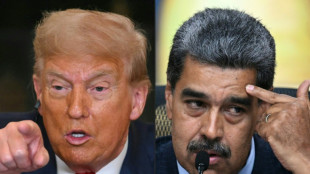
-
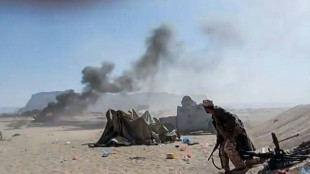 Saudi-backed forces make advances in Yemen's Hadramawt: military officials
Saudi-backed forces make advances in Yemen's Hadramawt: military officials
-
Wawrinka launches farewell season with thrilling United Cup win

-
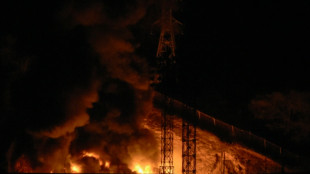 Venezuela accuses US of 'aggression' as explosions rock Caracas
Venezuela accuses US of 'aggression' as explosions rock Caracas
-
India unveils Buddha gems after century abroad

-
 Sabalenka says revenge not on her mind for Australian Open
Sabalenka says revenge not on her mind for Australian Open
-
Switzerland reels from deadly bar fire two days on as sparklers blamed
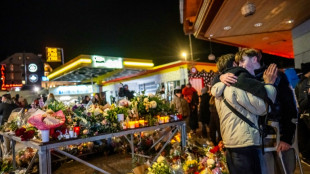
-
 Giannis dunk lifts Bucks, NBA champion Thunder roll on
Giannis dunk lifts Bucks, NBA champion Thunder roll on
-
'Chaotic mess' Kyrgios determined to enjoy himself after injuries
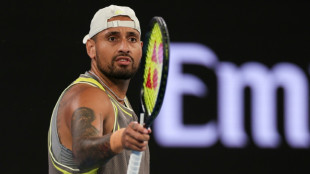
-
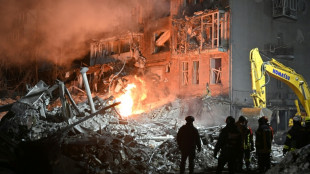 Ukraine hosts talks with security allies in Kyiv
Ukraine hosts talks with security allies in Kyiv
-
England captain Stokes says no coasting in 'huge' final Ashes clash

-
 Swiatek says women's tennis does not need 'Battle of the Sexes'
Swiatek says women's tennis does not need 'Battle of the Sexes'
-
Fritz struggling with 'serious tendonitis' ahead of Australian Open
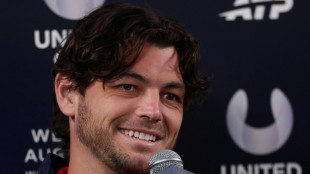
-
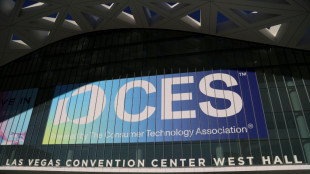 Sprawling CES gadgetfest a world stage for AI and its hype
Sprawling CES gadgetfest a world stage for AI and its hype
-
Zverev admits 'a lot of catching up' to reel in Alcaraz, Sinner

-
 Smith bats away retirement talk as he keeps England guessing
Smith bats away retirement talk as he keeps England guessing
-
NFL MVP Allen 'good to go' to extend streak in stadium farewell

-
 New to The Street Airs Tonight on Bloomberg Television - Show No. 712 Sponsored Programming Spotlighting Public and Private Market Innovators
New to The Street Airs Tonight on Bloomberg Television - Show No. 712 Sponsored Programming Spotlighting Public and Private Market Innovators
-
FindOfficeFurniture Expands Online Access to Office and Home Office Furniture Nationwide
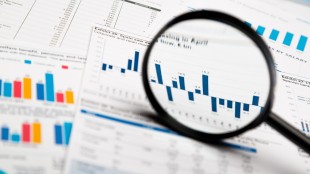
-
 Grok under fire after complaints it undressed minors in photos
Grok under fire after complaints it undressed minors in photos
-
UN chief calls on Israel to reverse NGOs ban in Gaza
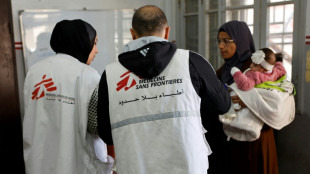
-
 Steelers' Watt 'excited' to return after lung injury
Steelers' Watt 'excited' to return after lung injury
-
Lens move four points clear of PSG at top of Ligue 1

-
 Tesla loses EV crown to China's BYD in 2025 as sales slip
Tesla loses EV crown to China's BYD in 2025 as sales slip
-
Sparklers blamed for deadly Swiss bar fire
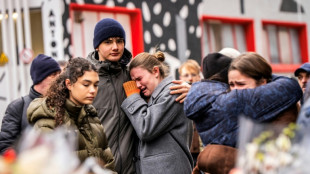

Nations gather for crunch climate talks in shadow of US vote
World leaders kick off UN climate talks next week, days after a knife edge US election that could send shockwaves through global efforts to limit dangerous warming.
The stakes are high for the COP29 conference in Azerbaijan where nations must agree a new target to fund climate action across huge swathes of the world.
It comes in a year likely to be the hottest in human history that has already witnessed a barrage of devastating floods, heatwaves and storms in all corners of the globe.
Nations are falling far short of what is needed to keep warming from hitting even more dangerous highs in the future.
But leaders arriving in Baku are wrestling with a host of challenges, including trade spats, economic uncertainty and conflicts in the Middle East and Ukraine.
Adding to the uncertainty, the US vote and potential return of Donald Trump, who pulled out of the Paris Agreement and has called climate change a "hoax", could ripple through the negotiations and beyond.
"You can imagine that if Trump is elected, and if the election outcome is clear by the time that we get to Baku, then there will be sort of a crisis moment," said Li Shuo, a Washington-based expert on climate diplomacy at the Asia Society Policy Institute.
He said that countries, likely including China, are preparing to send a "clear message" in support of global climate cooperation if Trump beats his rival Kamala Harris to the White House.
The UN talks are seen as critical to laying the groundwork for a major new round of climate commitments due early next year.
Current pledges would see the world blast past the internationally agreed limit of a 1.5 degrees Celsius rise in temperatures since the pre-industrial era.
"Decisions in Baku could profoundly shape the climate trajectory and whether 1.5 degrees remains within reach," said Cosima Cassel, of think tank E3G.
- Clash over cash -
Azerbaijan hosting the 11-22 November talks has drawn concerns over its heavy reliance on fossil fuels and its human rights record.
Countries last year committed to transition away from fossil fuels and triple renewables usage by 2030.
This year, negotiators must increase a $100 billion-a-year target to help poorer nations prepare for worsening climate impacts and wean off coal, oil and gas.
The overall amount of this new goal, where it comes from, and who has access are major points of contention.
Experts commissioned by the UN estimate that developing countries, excluding China, will need to spend $2.4 trillion per year by 2030 on climate priorities.
From that, $1 trillion must come from international public and private finance.
Wealthy existing donors, including the EU and US, have said new sources of money will have to be found, including from China and oil-rich Gulf states.
China –- today the world's largest polluter and second-largest economy –- does pay climate finance but on its own terms.
Between 2013 and 2022, China paid on average $4.5 billion a year to other developing countries, the World Resources Institute said in a September paper.
Money could also be raised by pollution tariffs, a wealth tax or ending fossil fuel subsidies, among other ideas.
Rachel Cleetus, policy director of the Climate and Energy programme at the Union of Concerned Scientists, said negotiators in Azerbaijan should aim for a $1 trillion deal.
This money "is not charity", Cleetus told AFP, adding that it should mostly come as aid or very low interest loans to avoid adding to developing nations' debt.
"Finance might sound like a technical issue, but we all know money talks," she told AFP.
"Nations either make those investments up front, or we'll be paying dearly for it after the fact, in disaster costs, in pollution costs. So this is a fork in the road. We have a choice."
- Green power -
Current climate pledges, even if implemented in full, would see the world lurch towards 2.6C warming by the end of the century -- threatening catastrophe for human societies and ecosystems, the UN Environment Programme has said.
A deal in Baku is seen as crucial to underpinning a set of more ambitious national pledges in the coming months.
Li said those future pledges could be impacted by the US vote, with countries, including China, waiting to see the outcome before finalising longer-term targets.
Beyond Baku, there is also an "increasing interconnection between climate and the economic agenda", he said, including trade tussles between clean energy powerhouse China and the US and Europe.
He said progress is more visible in "the green economy, who is winning the race when it comes to solar, wind, electric vehicles and energy storage".
A.Jones--AMWN

